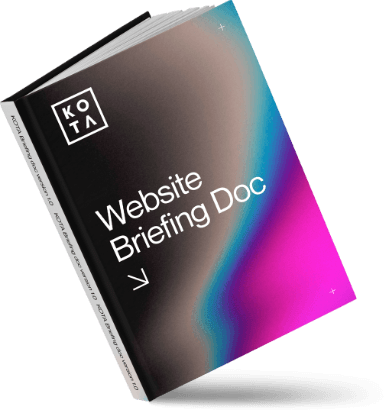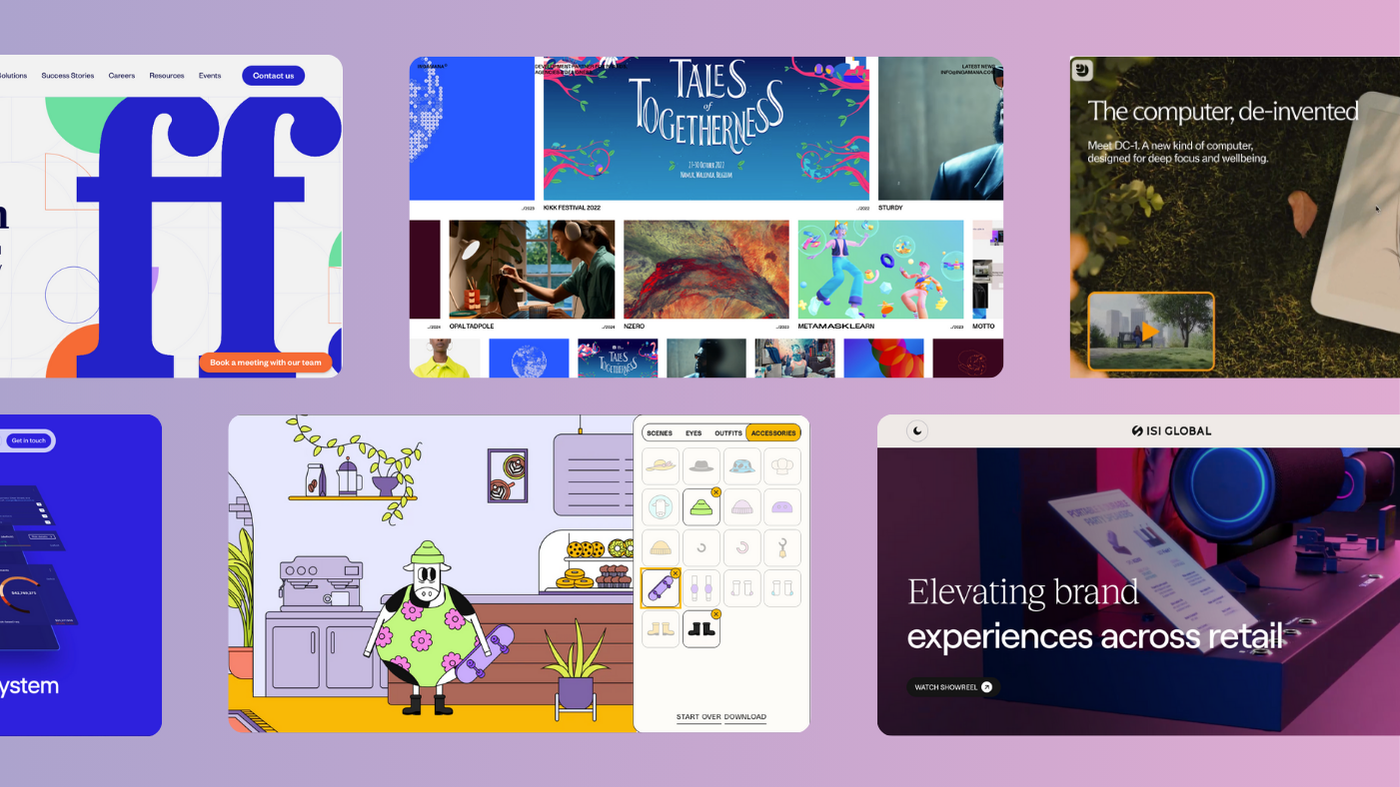Website projects: What slows them down (and how to keep things moving)

At KOTA, we’ve launched more websites than we can count — from nimble startup sites to complex, multi-language builds for global brands. After dozens of projects (and a few scars to prove it), we’ve learned exactly where timelines tend to get derailed… and more importantly, how to keep them on track.
The reality is, most delays aren’t “unlucky.” They’re predictable. And with the right planning, process, and experience, they can be avoided entirely.
Here’s what we see slowing website projects down, and how we’ve helped clients sidestep these pitfalls.
1. Fuzzy goals from day one
If the brief isn’t crystal clear, the project will drift. Vague goals force the design and dev teams to guess at priorities, revisit work, and make assumptions that may not align with your business needs. That’s how projects slide sideways before they’ve even started.
What we do at KOTA: We kick every project off with a detailed discovery process, making sure everyone agrees on what success looks like — whether that’s increasing leads, improving conversions, or changing how your brand is perceived. We’ve refined this into a free briefing template that covers everything from target audiences to must-have functionality. Our clients often tell us it’s the clearest, most useful tool they’ve used to define a project.
Spend time upfront defining objectives, success metrics, and non-negotiables. The sharper the brief, the fewer costly U-turns you’ll face later.
2. Content that isn’t ready
Design is only as strong as the content it’s built around. If your copy, images, and videos arrive late (or in bits and pieces), the project stalls. In our experience, late content can easily add weeks to a timeline — even more if it triggers design or layout changes.
What we do at KOTA: We align design, SEO, and content creation from the start, so SEOs, copywriters, designers, and developers work in sync. We also set realistic deadlines for content delivery and help clients prioritise launch content versus “nice-to-have later” to avoid hold-ups.
Lock in a content plan early, know exactly who’s producing what, and set internal deadlines you can actually hit. If you’re handling content in-house, allocate enough time for writing, editing, and approvals.
3. Feedback loops from hell
Too many voices, no clear sign-off process, and conflicting feedback can turn a single round of amends into an endless cycle. This is where projects can lose weeks without anyone noticing.
What we do at KOTA: We recommend nominating one or two decision-makers for each project stage. We also help clients collate feedback into a single, prioritised list before it reaches the relevant team — which keeps any revisions focused and efficient.
Keep your feedback specific, actionable, and aligned with the brief. Separate subjective preferences (“I don’t like that shade of blue”) from feedback that affects usability, brand consistency, or business goals.
4. Scope creep
Adding “just one more page” or “small extra feature” mid-project feels harmless, but we’ve seen those additions snowball into major delays. It’s rarely about bad ideas — more about the fact that timelines, resources, and testing need to adjust every time the scope shifts.
What we do at KOTA: We lock in the scope at the start, then park new ideas in a “phase two” list for post-launch. This keeps momentum going while still capturing those lightbulb moments for later. Many clients roll these improvements into our SiteCare service, which gives them ongoing access to the same design and development team who built their site. That way, new features get implemented quickly and seamlessly without disrupting the original launch.
Before you request changes mid-project, ask if it’s critical for launch. If not, save it for later. A smooth launch beats a delayed “perfect” site that never makes it live.
5. Slow decision-making
It’s surprising how often projects stall because an approval email sits unopened for a week. Even small decisions — approving a font, signing off a layout — can push the entire schedule back.
What we do at KOTA: We keep approvals visible and track them in project management tools so nothing gets lost. We also make sure decision-makers have the authority to approve without extra layers of sign-off.
Set clear internal deadlines for feedback and stick to them. If someone is likely to be unavailable, nominate a backup.
6. Unrealistic timelines
We’ve seen ambitious schedules succeed, but when the timeline is too tight, something has to give: quality, testing, sanity etc.
What we do at KOTA: We’re upfront about what’s achievable. We build realistic schedules and communicate clearly if a change impacts launch dates.
Be honest about your internal capacity. If you know a major event or product launch will be eating your team’s time, plan around it rather than hoping you’ll find the hours.
7. Underestimating testing
Testing isn’t just about checking for typos. It’s about performance, accessibility, SEO, and making sure the site behaves across devices, browsers, and real-world conditions. Skipping it can mean launching with broken features or accessibility fails that hurt your brand.
What we do at KOTA: We have structured testing phases built into every project. That includes QA across multiple browsers and devices, accessibility checks, speed tests, and live user testing where appropriate.
Treat testing as non-negotiable. Allocate time for it in your project plan, and involve actual users where you can.
Feel the momentum, protect quality
A website project is like a relay — the agency and the client each have to pass the baton quickly and cleanly. At KOTA, our role is to make that handover as smooth as possible, keeping decisions clear, expectations realistic, and progress visible. That’s how we’ve consistently launched high-quality sites on time, even for complex builds.
If you’re starting a website project soon, download our free briefing template and set yourself up for success before a single pixel is designed. With the right preparation, you’ll spend less time untangling delays — and more time celebrating your launch.
Interested in working with KOTA?
Drop us a line at
hello@kota.co.uk
We are a Creative Digital Agency based in Clerkenwell London, specialising in Creative Web Design, Web Development, Branding and Digital Marketing.






